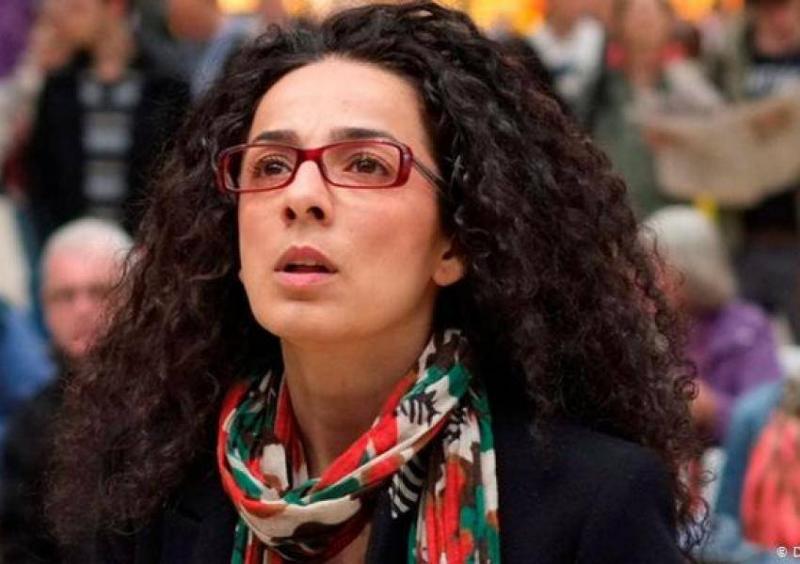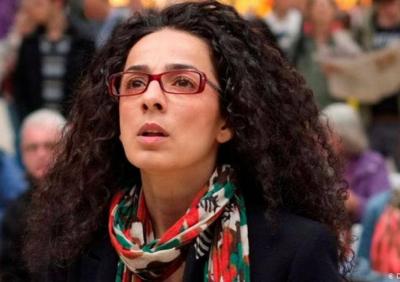U.S. authorities announced on Tuesday that they have charged four "Iranian intelligence operatives" with conspiracy to kidnap an American journalist of Iranian descent living in the United States who is active in "exposing human rights abuses" in the Islamic Republic. While the U.S. government did not disclose the journalist's name, Masih Alinejad, a journalist and activist residing in New York who founded a movement to encourage women in her home country to remove their hijabs, appeared to confirm in a tweet that the kidnapping plot was aimed at her.
The U.S. Department of Justice stated that the four defendants, all men, sought since "June 2020" to kidnap "a writer and journalist who exposed human rights violations committed by the Iranian government." U.S. Attorney Audrey Strauss was quoted in the statement saying that the defendants planned to "forcefully take their victim to Iran, where her fate would be, at best, unknown."
Feminist activist Masih Alinejad stated that she is the target of this kidnapping plot, expressing gratitude on Twitter to the FBI for thwarting the Iranian intelligence scheme and showing herself in front of a window with a police car visible outside her home. She confirmed that the car has been parked outside her house for the past two weeks.
According to the indictment, the defendants resorted to "hiring private investigators to monitor and photograph" their victim and her relatives "on several occasions" during 2020 and 2021. While currently living in the United States, Alinejad criticizes the Iranian regime and its policies and has received support from major celebrities like actress Meryl Streep, who appeared with her on stage at a women's rights conference in 2016. She stated in April in a video before the Swedish Parliament, "In the eyes of the Iranian regime, every woman fighting for her basic rights is a criminal."
Other Victims
The operatives were seeking ways to transport the journalist out of the United States, and one of them reportedly inquired about speedboats to propose an "independent maritime evacuation" from New York and a ship journey from New York to Venezuela, "which has friendly relations with Iran," according to the prosecutors.
The network uncovered by the FBI was targeting other victims, particularly those living "in Canada, the UK, and the UAE," and reportedly attempted to use similar surveillance methods against them, according to the prosecutors. The four defendants are Ali Reza Shourghi Farahani, Mahmoud Khadjeh, Kiya Sadeqi, and Omid Noori. According to the statement, a fifth Iranian suspect residing in California is believed to have participated in financing this plot.
U.S. Attorney Mark Lesko confirmed, "Everyone in the United States should be free from any harassment or threat or harm to their physical safety from a foreign power." The non-governmental organization Reporters Without Borders states that Iran is one of the most repressive countries for journalists globally, exercising "severe" censorship of news and ranking 174th out of 180 in their 2021 World Press Freedom Index. The organization added that "the repression of press freedom is not limited to within the country," noting that since 1979, at least 860 journalists "have been arrested, detained, or executed by the authorities."
In January 2016, Tehran exchanged Washington Post journalist Jason Rezaian for seven Iranians who were imprisoned in the United States. Rezaian, the American newspaper's correspondent in Iran, was detained along with his wife on July 22, 2014, shortly after Iran had agreed to engage in negotiations over its nuclear program, which the international community suspected included a military dimension. His wife was released after two months. Rezaian, who was accused of "espionage" for the United States, spent 544 days in Evin Prison in northern Tehran, where he reported being mistreated, deprived of sleep, and threatened with beheading.
Iran is currently detaining more than ten Westerners, most of whom also hold Iranian citizenship, either in prison or under house arrest, including French-Iranian researcher Fariba Adelkhah, who has been incarcerated for two years.




